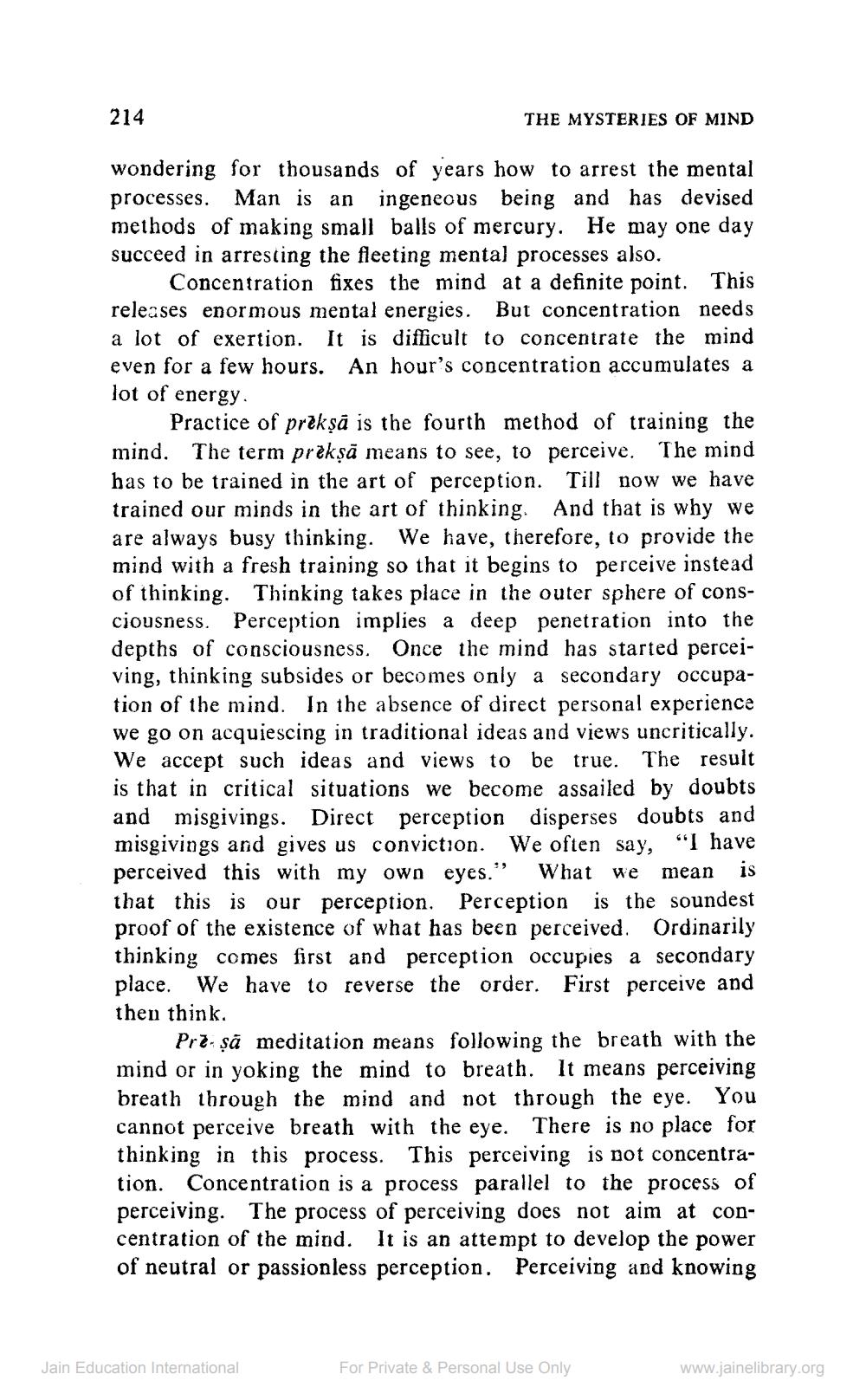________________
214
THE MYSTERIES OF MIND
wondering for thousands of years how to arrest the mental processes. Man is an ingeneous being and has devised methods of making small balls of mercury. He may one day succeed in arresting the fleeting mental processes also.
Concentration fixes the mind at a definite point. This releases enormous mental energies. But concentration needs
t of exertion. It is difficult to concentrate the mind even for a few hours. An hour's concentration accumulates a lot of energy.
Practice of prèkşā is the fourth method of training the mind. The term prekşā means to see, to perceive. The mind has to be trained in the art of perception. Till now we have trained our minds in the art of thinking. And that is why we are always busy thinking. We have, therefore, to provide the mind with a fresh training so that it begins to perceive instead of thinking. Thinking takes place in the outer sphere of consciousness. Perception implies a deep penetration into the depths of consciousness. Once the mind has started perceiving, thinking subsides or becomes only a secondary occupation of the mind. In the absence of direct personal experience we go on acquiescing in traditional ideas and views uncritically. We accept such ideas and views to be true. The result is that in critical situations we become assailed by doubts and misgivings. Direct perception disperses doubts and misgivings and gives us conviction. We often say, "I have perceived this with my own eyes." What we mean is that this is our perception. Perception is the soundest proof of the existence of what has been perceived. Ordinarily thinking comes first and perception occupies a secondary place. We have to reverse the order. First perceive and then think.
Pre șā meditation means following the breath with the mind or in yoking the mind to breath. It means perceiving breath through the mind and not through the eye. You cannot perceive breath with the eye. There is no place for thinking in this process. This perceiving is not concentration. Concentration is a process parallel to the process of perceiving. The process of perceiving does not aim at concentration of the mind. It is an attempt to develop the power of neutral or passionless perception. Perceiving and knowing
Jain Education International
For Private & Personal Use Only
www.jainelibrary.org




